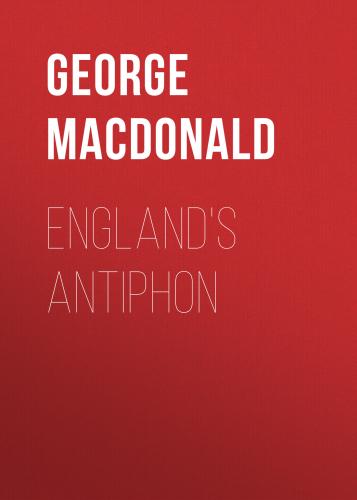With love may one another entertain.
So let us love, dear love, like as we ought:
Love is the lesson which the Lord us taught.
Those who have never felt the need of the divine, entering by the channel of will and choice and prayer, for the upholding, purifying, and glorifying of that which itself first created human, will consider this poem untrue, having its origin in religious affectation. Others will think otherwise.
The greater part of what I shall next quote is tolerably known even to those who have made little study of our earlier literature, yet it may not be omitted here. It is from An Hymne of Heavenly Love, consisting of forty-one stanzas, written in what was called Rime Royal—a favourite with Milton, and, next to the Spenserian, in my opinion the finest of stanzas. Its construction will reveal itself. I take two stanzas from the beginning of the hymn, then one from the heart of it, and the rest from the close. It gives no feeling of an outburst of song, but rather of a brooding chant, most quiet in virtue of the depth of its thoughtfulness. Indeed, all his rhythm is like the melodies of water, and I could quote at least three passages in which he speaks of rhythmic movements and watery progressions together. His thoughts, and hence his words, flow like a full, peaceful stream, diffuse, with plenteousness unrestrained.
AN HYMN OF HEAVENLY LOVE
Before this world's great frame, in which all things
Are now contained, found any being place,
Ere flitting Time could wag his eyas55 wings
About that mighty bound which doth embrace
The rolling spheres, and parts their hours by space,
That high eternal power, which now doth move
In all these things, moved in itself by love.
It loved itself, because itself was fair,
For fair is loved; and of itself begot
Like to itself his eldest son and heir,
Eternal, pure, and void of sinful blot,
The firstling of his joy, in whom no jot
Of love's dislike or pride was to be found,
Whom he therefore with equal honour crowned.
* * * * *
Out of the bosom of eternal bliss,
In which he reignéd with his glorious Sire,
He down descended, like a most demisse humble.
And abject thrall, in flesh's frail attire,
That he for him might pay sin's deadly hire,
And him restore unto that happy state
In which he stood before his hapless fate.
* * * * *
O blessed well of love! O flower of grace!
O glorious Morning-Star! O Lamp of Light!
Most lively image of thy Father's face!
Eternal King of Glory, Lord of might!
Meek Lamb of God, before all worlds behight! promised.
How can we thee requite for all this good?
Or what can prize that thy most precious blood? equal in value.
Yet nought thou ask'st in lieu of all this love
But love of us for guerdon of thy pain:
Ay me! what can us less than that behove?56
Had he required life of57 us again,
Had it been wrong to ask his own with gain?
He gave us life, he it restored lost;
Then life were least, that us so little cost.
But he our life hath left unto us free—
Free that was thrall, and blessed that was banned; enslaved; cursed.
Nor aught demands but that we loving be,
As he himself hath loved us aforehand,
And bound thereto with an eternal band—
Him first to love that us58 so dearly bought,
And next our brethren, to his image wrought.
Him first to love great right and reason is,
Who first to us our life and being gave,
And after, when we faréd had amiss,
Us wretches from the second death did save;
And last, the food of life, which now we have,
Even he himself, in his dear sacrament,
To feed our hungry souls, unto us lent.
Then next, to love our brethren that were made
Of that self mould, and that self Maker's hand,
That59 we, and to the same again shall fade,
Where they shall have like heritage of land, the same grave-room.
However here on higher steps we stand;
Which also were with selfsame price redeemed,
That we, however, of us light esteemed. as.
And were they not, yet since that loving Lord
Commanded us to love them for his sake,
Even for his sake, and for his sacred word,
Which in his last bequest he to us spake,
We should them love, and with their needs partake; share their
Knowing that, whatsoe'er to them we give, [needs.
We give to him by whom we all do live.
Such mercy he by his most holy rede instruction.
Unto us taught, and to approve it true,
Ensampled it by his most righteous deed,
Shewing us mercy, miserable crew!
That we the like should to the wretches60 shew,
And love our brethren; thereby to approve
How much himself that loved us we love.
Then rouse thyself, O earth! out of thy soil,
In which thou wallowest like to filthy swine,
And dost thy mind in dirty pleasures moyle, defile.
Unmindful of that dearest Lord of thine;
Lift up to him thy heavy clouded eyne,
That thou this sovereign bounty mayst behold,
And read through love his mercies manifold.
Begin from first, where he encradled was
In simple
